The World's Most Popular Indoor Palm
Why Areca Palm Trees?
Areca Palms boldly go further up North than any other palms have before because they thrive in pots and low light conditions. If you live outside of the Areca Palm’s recommended growing zones, you can simply plant them in containers and bring them indoors during the colder months.
And with Areca Palms, you'll breathe easy because they filter and clean the air. They filter dry, stale air and remove its pollutants and irritants while pumping out fresh, clean and humid oxygen. Plus, each stem is covered with dark, lush, green leaf blades that bring a tropical look to any room of the house.
As a house plant, the Areca Palm greets and entertains guests with year-round color. Pale golden yellow flowers emerge that give way to small, bright orange ornamental fruits that are referred to as ‘betel nuts’.
Why Fast-Growing-Trees.com is Better
Best of all, Areca Palms are incredibly hassle-free. With a high a level of drought tolerance and heat resistance, they will handle the hottest month of the year without any trouble. And they aren’t picky about their soil, or the amount of sunlight they receive.
We've planted and grown our Arecas to be proven performers in your homescape, so that means effortless care and lush growth are a given once your plant arrives to your door.
Get the promise of exotic, tropical-inspired looks in your space today - get the Areca Palm Tree!
Looking for more palm trees to add to your collection? Check out our guide to popular .
Planting & Care
1. Planting: Choose a location that receives bright-indirect light or at least 6 hours of sun per day. When you're ready to plant, dig your hole 2 to 3 times the width and slightly shallower than the root ball. Hold the tree straight as you begin to back fill the site, tamping down the soil as you go. When finished, apply water to settle the soil and remove any air pockets.
If you plant in a container, select one that is 1 to 2 times larger than the pot your plant arrived in. Choose a location on the patio, backyard, or front/side of the house, providing it will receive full to partial sun.
2. Watering : Stick your finger into the potting soil down to a depth of 2 inches and feel around for any moisture. If the soil is drying out, go ahead and water until you see it escaping the drainage holes and then stop. If there is still moisture present, leave it be until it dries a bit more.
3. Pruning: Palms do not need much pruning except to remove damaged fronds. Be careful not to pull off any dead or damaged fronds - always remove any damaged fronds by pruning them off with a sharp pair of sterilized pruners.
4. Fertilizing: You can apply palm fertilizers that contain specific nutrients best suited for these varieties. If you prefer, you can use a balanced fertilizer such as an 8-8-8 formula for quicker growth in spring and summer. To avoid yellowing and maintain a healthy shade of green coloring, feed your tree a few spoons full of Epsom salt or a fertilizer that contains nutrients like manganese which will prevent the yellowing and shriveling of the fronds.

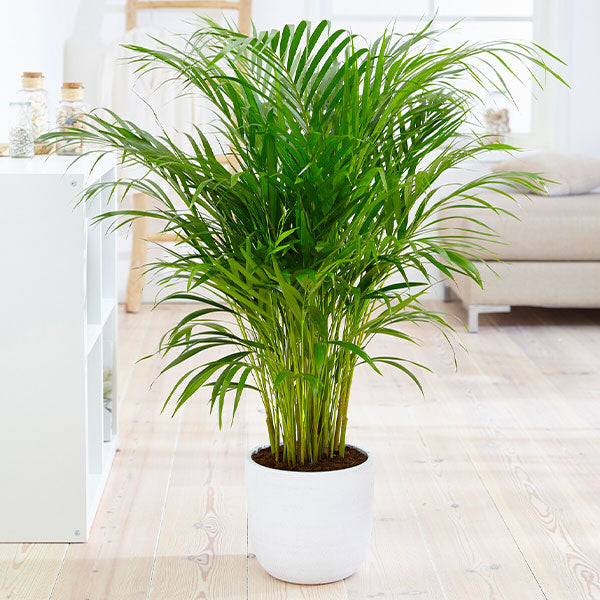
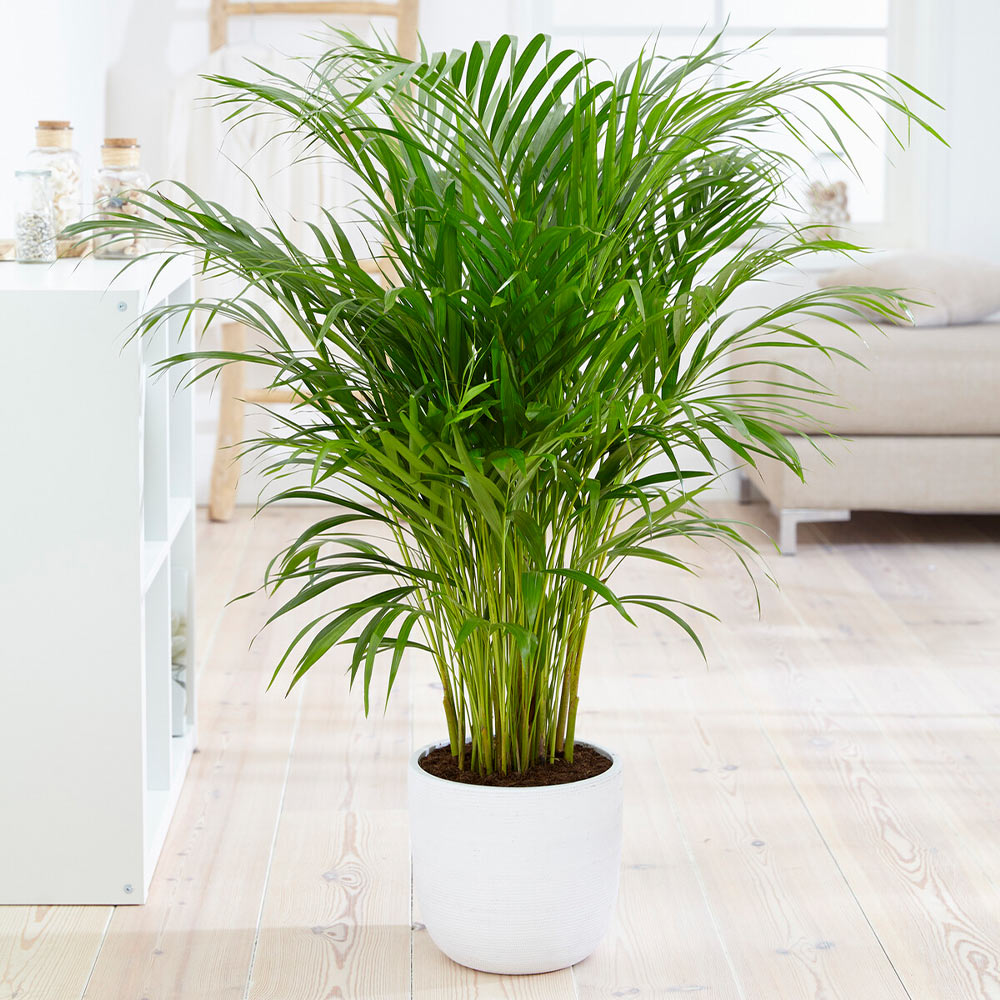
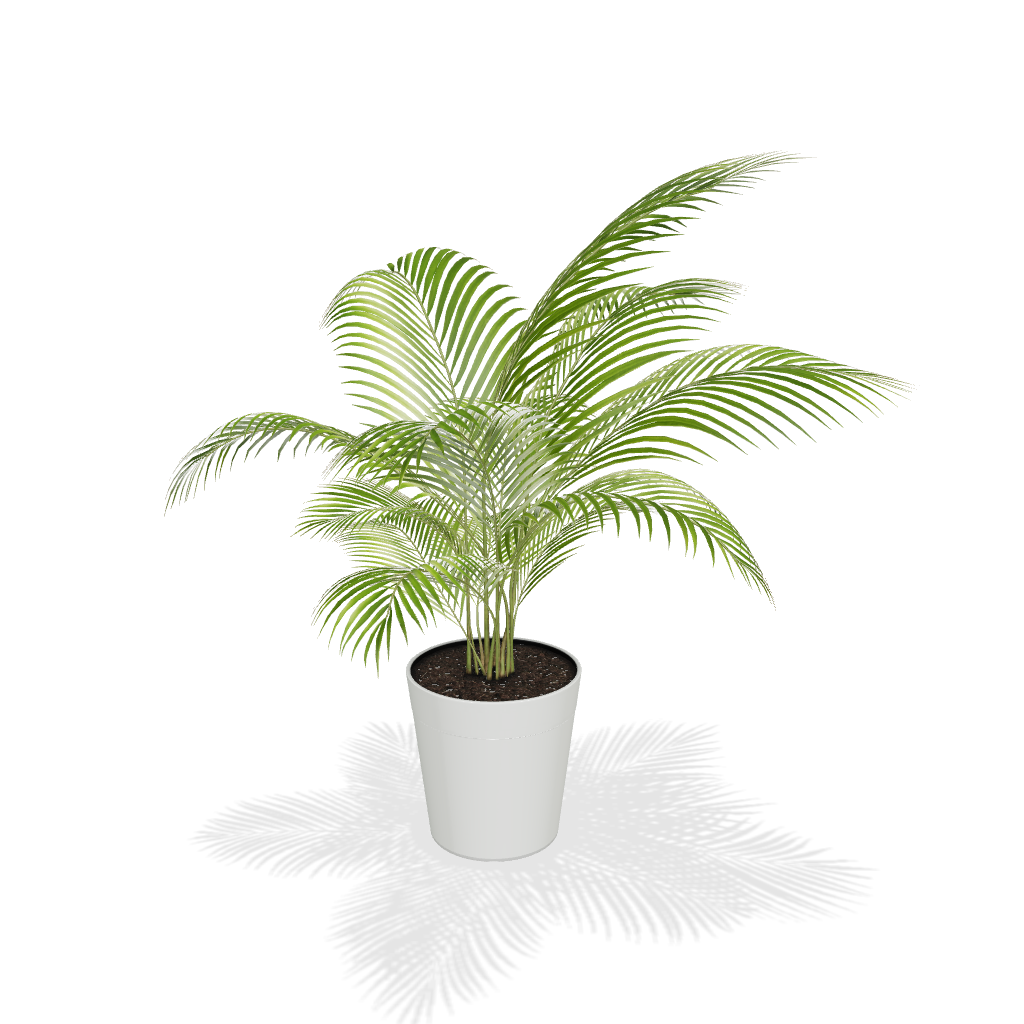
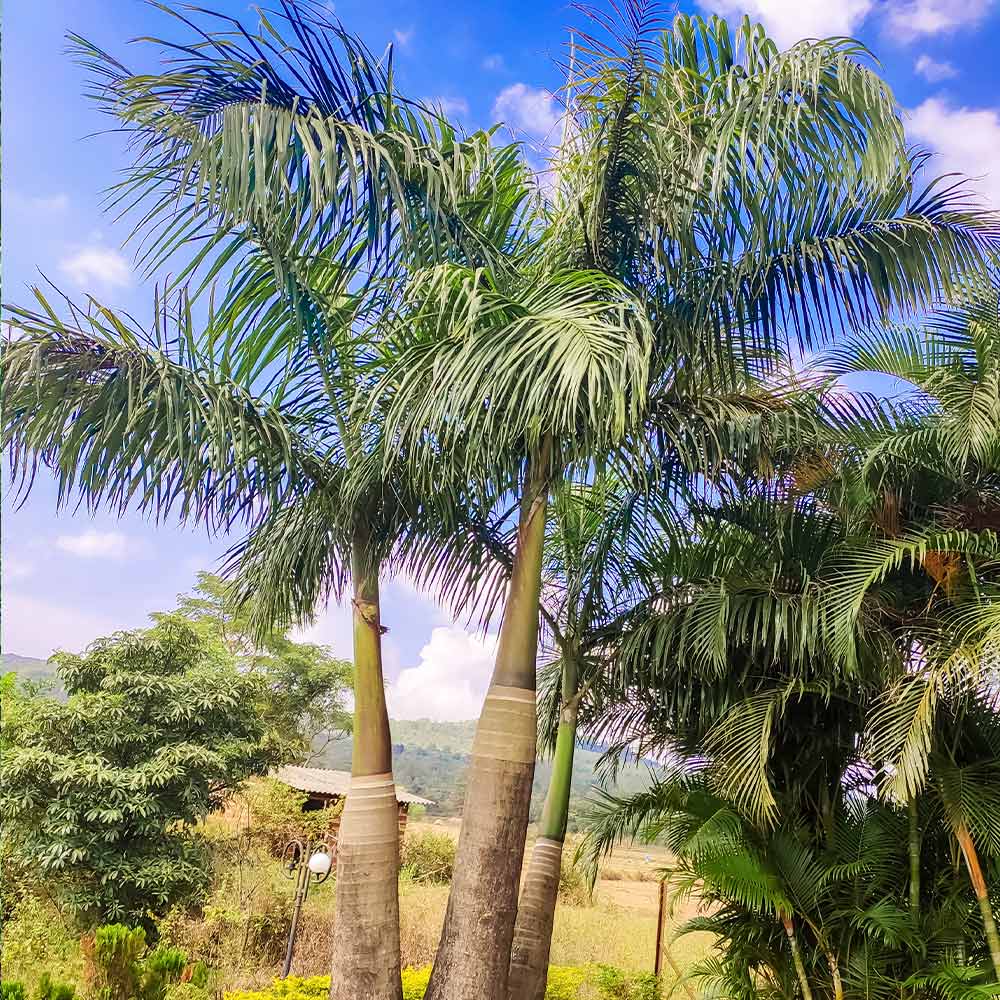
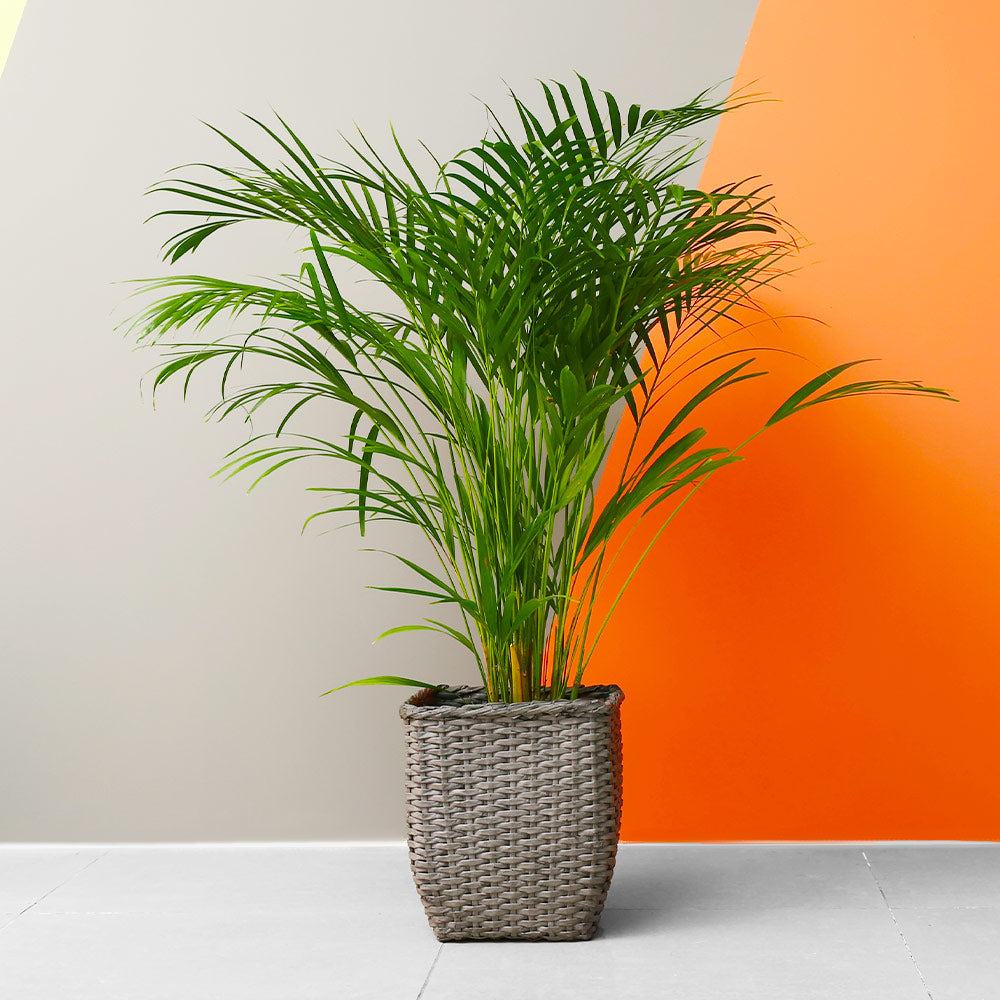
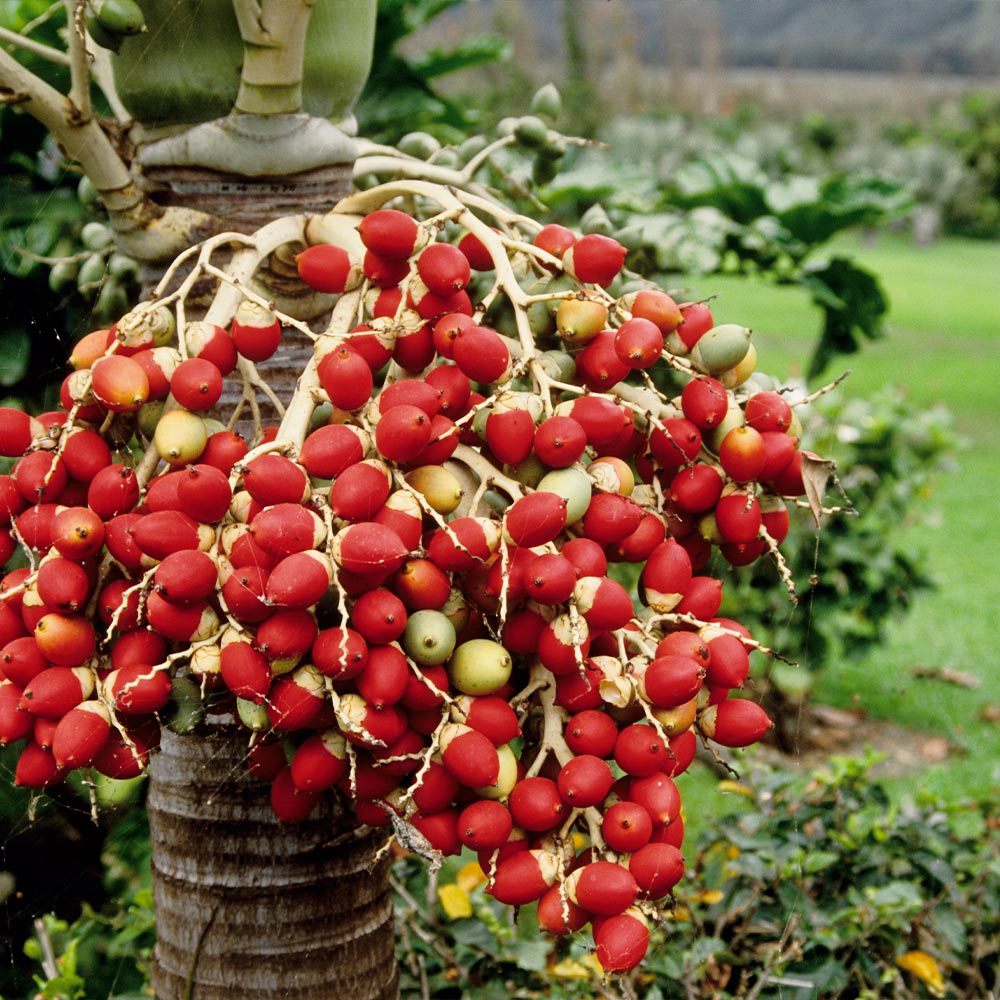
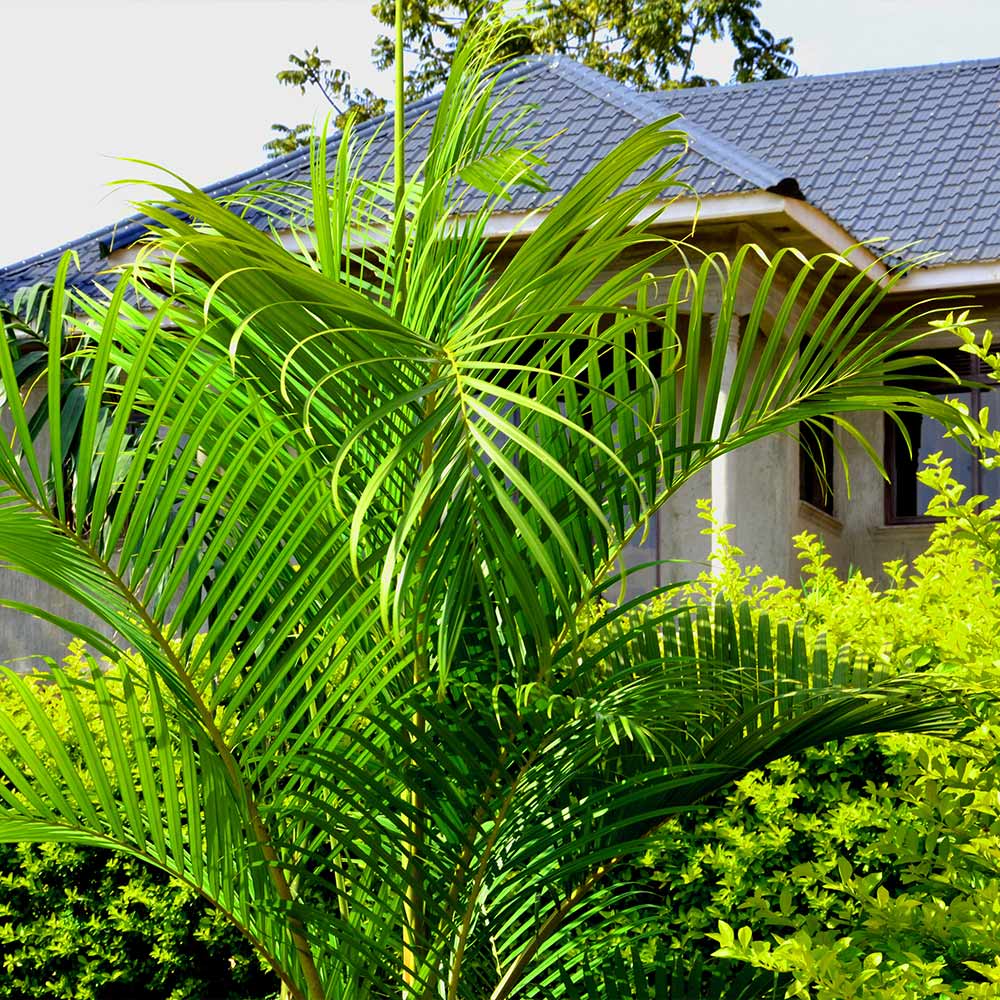
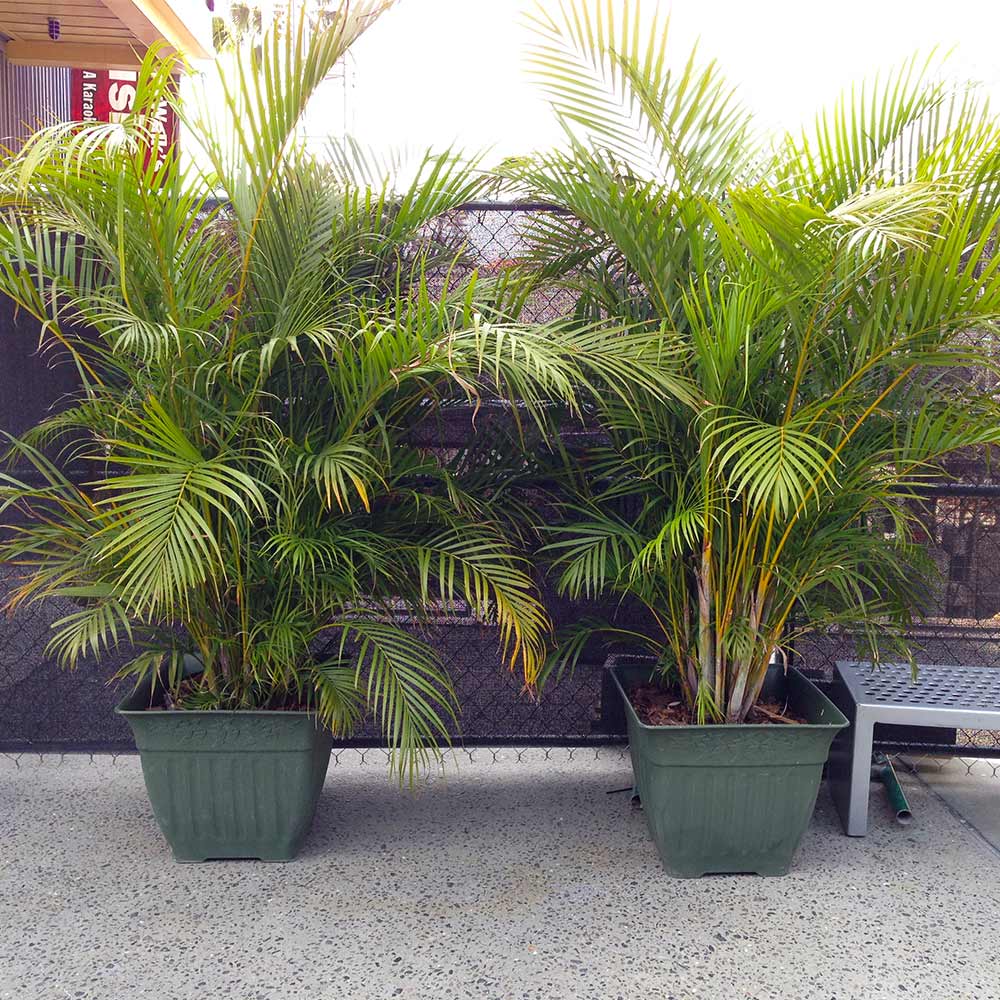

Comment